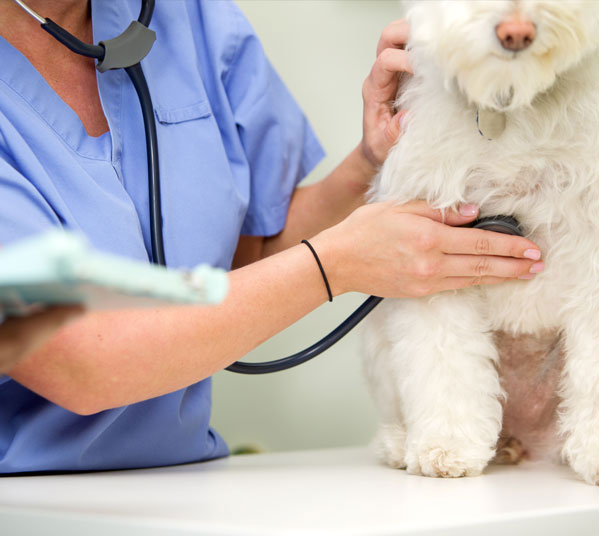|
What You Need to Know Before Your Pet's Upcoming Surgery
 Many people have questions about various aspects of their pet's surgery, and we hope this information will help. Many people have questions about various aspects of their pet's surgery, and we hope this information will help.
Is anesthesia safe?
In animals, and humans for that matter, there is a small risk of death with every anesthetic no matter what. However, the benefits of having a procedure usually outweigh the risk. Steps taken to reduce the risk include:
- A thorough physical exam before administering anesthetics, to ensure that a fever, heart murmur or other illness won't be a problem.
- Blood work done prior to an anesthetic to provide information about liver and kidney function as well as if there is anemia or infection present.
- Using computer software to calculate anesthetic and emergency drug doses specific for an individual pet reduces human error and improves preparedness if there is a problem.
- Placement of an IV catheter ensures adequate hydration and also provides a port for the administration of anesthetic, pain and emergency drugs, if necessary.
- The use of an anesthetic monitor, although not perfect, provides continuous feedback about pulse and respiration rates, oxygen and carbon dioxide saturation, blood pressure and temperature.
- Close monitoring throughout the entire procedure by a skilled Registered Veterinary Technician is critical for optimal patient care.
What about preanesthetic blood work?
Preanesthetic blood work is recommended for every pet before surgery to ensure that the liver and kidneys are healthy and can handle the anesthetic. Even apparently healthy animals can have serious organ system problems that cannot be detected without blood testing. If there is a problem, it is much better to find it before it causes anesthetic or surgical complications. Animals that have minor dysfunction may still be able to under go an anesthetic with some alterations in the anesthetic plan. If serious problems are detected, surgery can be postponed until the problem is corrected. Blood testing should be done 3-7 days prior to a scheduled surgery. For geriatric or ill pets, additional blood tests, electrocardiograms, or x-rays may be required before surgery as well.
Can I feed my pet before surgery?
It is important that surgery be done on an empty stomach to reduce the risk of vomiting during and after anesthesia. You will need to withhold food for at least 8 hours before surgery. Water can be left down for the pet until the morning of surgery.
Will my pet have stitches?
For many surgeries, we use absorbable sutures underneath the skin. These will dissolve on their own, and do not need to be removed later. Some surgeries, especially tumor removals, do require skin stitches. With either type of suture, you will need to keep an eye on the incision for swelling or discharge. Most dogs and cats do not lick excessively or chew at the incision, but this is an occasional problem you will also need to watch for. If there are skin sutures, these will usually be removed 10 to 14 days after surgery. You will also need to limit your pet's activity level for a time and no baths are allowed for the first 5 days after surgery.
Will my pet be in pain?
Anything that causes pain in people can be expected to cause pain in animals. Pets may not show the same symptoms of pain as people do; they usually don't whine or cry, but you can be sure they feel it. Pain medications needed will depend on the surgery performed.
Injectable pain medications and anesthetics are used before and during painful procedures to maximize patient comfort. Easy to administer pain medications are sent home with the pet to keep them comfortable in the days following the procedure. The costs of these medications can very depending on the size of the pet.
Do not use ibuprofen or acetominophen (Tylenol) in pets. Although providing pain relief is a humane and caring thing to do for your pet, these medications are toxic to cats and dogs and can result in severe illness or death.
What other decisions do I need to make?
While your pet is under anesthesia, it is the ideal time to perform other minor procedures, such as dentistry, ear cleaning, or implanting an identification microchip. If you would like an estimate for these extra services, please call ahead of time. This is especially important if the person dropping the pet off for surgery is not the primary decision maker for the pet's care.
You will receive a call the day before your pet's scheduled surgery appointment to confirm the time to drop off your pet and to answer any questions you might have. If you have questions about your pet's health or surgery before that, please don't hesitate to call us.
On the day of the surgery, we will need to 10-15 minutes with you to go over the options and obtain your consent for the procedure. When you pick up your pet after surgery you can also plan to spend 10-15 minutes to go over your pet's home care needs. You will receive a follow up phone call one or two days after the surgery to find out how your pet is doing and address any concerns you may have.
|